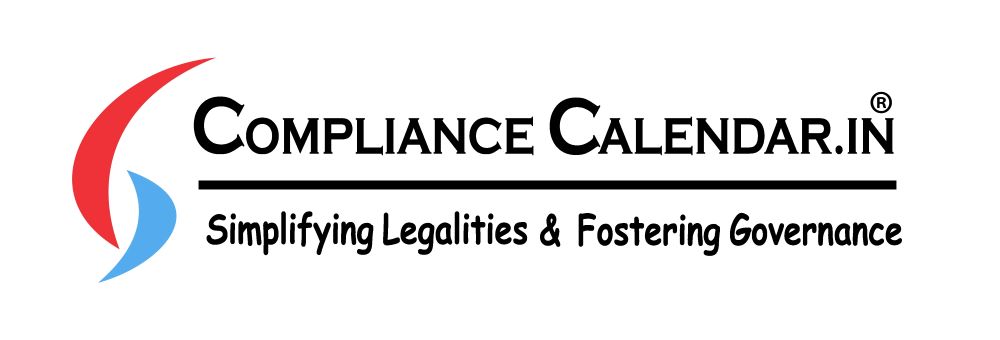SEBI Guidelines for Investment Advisors and Research analyst: Ensuring Transparency and Trust

Strong 8k brings an ultra-HD IPTV experience to your living room and your pocket.
In India’s evolving financial site, the need for credible and professional advice has never been greater. As retail investors grow in number and sophistication, so does their reliance on experts for guidance on where and how to invest. Recognizing this, the Securities and Exchange Board of India (SEBI) has implemented comprehensive guidelines for Investment Advisors (IAs) and Research Analyst (RAs). These guidelines are aimed at ensuring transparency, maintaining trust, and safeguarding investor interests.
Who Are Investment Advisors and Research Analysts?
Before diving into the regulations, it is essential to understand the roles:
Investment Advisors (IAs) are individuals or entities that provide financial planning, portfolio management, or investment advice for a fee.
Research Analysts (RAs) prepare and publish research reports or provide recommendations on securities and market trends, which investors and brokers rely upon for decision-making.
The Importance of Regulation
Investment advice and research reports directly influence the financial decisions of investors. In the absence of regulations, there is a risk of conflicts of interest, misrepresentation, and mis-selling of products. SEBI’s regulatory framework aims to:
Establish minimum qualifications and capital adequacy,
Ensure transparency and disclosure of potential conflicts,
Create an environment of fair dealing and fiduciary responsibility, and
Strengthen investor protection mechanisms.
Key SEBI Guidelines for Investment Advisors
SEBI notified the Investment Advisers Regulations, 2013, which were subsequently amended in 2020. Here are the major highlights:
- Registration Requirement
All investment advisors must register with SEBI before offering their services.
Both individuals and firms (companies, LLPs, partnerships) can apply.
A unique SEBI registration number must be mentioned in all communication.
- Eligibility Criteria
Individuals must have:
A professional qualification (CA, CFA, MBA Finance, etc.) or a postgraduate degree in finance or a related field,
NISM Series-XA and Series-XB certifications,
At least 5 years of experience (for non-individual entities).
Net worth requirement:
₹5 lakhs for individual IAs,
₹50 lakhs for non-individual IAs.
- Segregation of Advisory and Distribution Services
To avoid conflict of interest, SEBI mandates that:
An entity cannot provide both advisory and distribution services to the same client.
Group companies or associates offering distribution must not be part of the advisory process.
- Fee Structure
Advisors can charge fees either through:
A fixed-fee model (up to ₹1.25 lakhs per annum per client), or
An Assets Under Advice (AUA) model (maximum of 2.5% of AUA).
They must clearly disclose the mode and amount of fees to clients.
- Client Agreements and Risk Profiling
A mandatory written agreement must be signed before offering any advice.
Advisors are required to conduct risk profiling and suitability assessment before making any recommendation.
- Record Maintenance
Investment advisors must maintain:
KYC records,
Risk profiles,
Investment advice given,
Fee receipts, and
Client grievances.
Records must be kept for at least 5 years.
- Grievance Redressal
Advisors must have proper systems for redressing client complaints.
Clients can also approach SEBI’s SCORES platform for dispute resolution.
Key SEBI Guidelines for Research Analysts
SEBI notified the Research Analyst Regulations in 2014, which were enhanced to maintain high-quality, unbiased analysis.
- Registration Requirement
All individuals and entities acting as RAs must be registered with SEBI.
The SEBI registration number must be displayed on all reports and advertisements.
- Eligibility Criteria
RAs must have:
A professional qualification or postgraduate degree/diploma in finance,
At least 1-year relevant experience in financial analysis or research,
NISM Series-XV certification.
- Disclosures and Transparency
Research reports must disclose:
Financial interest in the subject company,
Any potential conflict of interest,
Whether the analyst or relatives hold shares in the recommended security,
Whether the research analyst received any compensation from the company being analyzed.
- Code of Conduct
RAs must:
Avoid personal trades before or immediately after issuing a report,
Not exaggerate or mislead in analysis,
Maintain confidentiality of unpublished price-sensitive information (UPSI),
Be fair and objective in opinion formation.
- Record Maintenance
Maintain:
Published reports,
Sources of data,
Disclosures made,
Communication with clients,
All records must be retained for five years.
Digital Platforms and Influencers: SEBI’s Tightening Grip
In recent years, many social media influencers and unregistered advisors have offered stock tips and investment advice online. SEBI has taken a firm stance against such practices:
Only registered IAs and RAs are allowed to give financial advice.
Entities using platforms like YouTube, Telegram, or WhatsApp to influence public investment decisions without registration violate SEBI regulations.
SEBI has issued multiple orders imposing penalties on violators and barring them from markets.
Benefits of SEBI Regulations
SEBI’s regulatory framework ensures:
Protection for Retail Investors – Proper due diligence, transparency, and suitability protect investors from mis-selling.
Credibility and Professionalism – Mandatory qualifications and certifications ensure high advisory standards.
Accountability – Advisors and analysts can be held accountable for misleading recommendations.
Reduced Conflicts of Interest – Structural separation of advisory and distribution limits biased suggestions.
Challenges in Implementation
Despite strong regulations, certain challenges remain:
Low investor awareness about checking SEBI registration.
Difficulty in monitoring unregistered players on digital platforms.
Compliance burden on small advisory firms due to cost and operational limitations.
Limited investor recourse in case of advisory negligence or fraud.
Way Forward
SEBI continues to revise and improve its regulations in line with global best practices. Some of the expected or needed changes include:
Stricter action against unregistered advisory services.
Centralized advisor verification portals for investors.
More investor education campaigns to distinguish between registered and unregistered sources.
Encouraging fintech compliance to widen access to quality advisory services.
Conclusion
SEBI’s guidelines for Investment Advisor and Research Analysts are designed to uphold the twin pillars of transparency and trust in India’s financial ecosystem. They not only promote ethical and responsible practices but also protect investors from fraud and misinformation. As financial literacy spreads and markets deepen, strict compliance with SEBI regulations will be key to building a robust, investor-friendly advisory environment.
Note: IndiBlogHub features both user-submitted and editorial content. We do not verify third-party contributions. Read our Disclaimer and Privacy Policyfor details.







